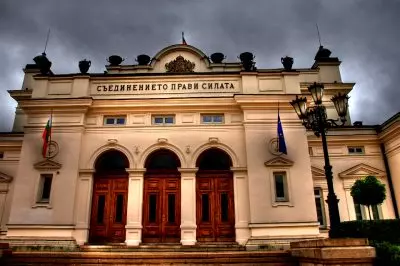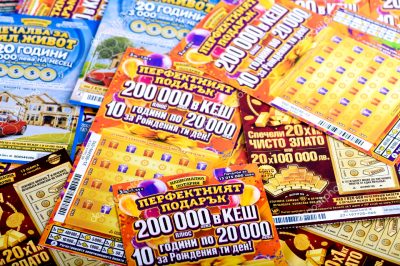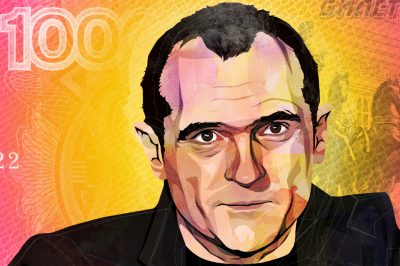 The Bulgarian gambling sector is in for a massive overhaul as local lawmakers embraced an amendment to the 2012 Gambling Act this last week. The changes were proposed earlier this month by Bulgarian legislator Valeri Simeonov, a leader and a founding member of the nationalist political party the National Front for the Salvation of Bulgaria (NFSB).
The Bulgarian gambling sector is in for a massive overhaul as local lawmakers embraced an amendment to the 2012 Gambling Act this last week. The changes were proposed earlier this month by Bulgarian legislator Valeri Simeonov, a leader and a founding member of the nationalist political party the National Front for the Salvation of Bulgaria (NFSB).
Simeonov’s bill, which aims at banning private lotteries, received strong support at last week’s plenary meeting when it was adopted at first reading. It was approved by a majority of 116 Members of Parliament, with 2 votes against and 68 abstentions.
If officially adopted, the changes would impose a government monopoly under which only the state-owned Bulgarian Sports Totalizator (BST) would be able to legally organize lottery games. The new rules would bring in additional revenue for the country, a portion of which will be used to finance local sports federations and physical education. Tax collection is expected to significantly improve under these conditions.
The BST is a state-owned lottery operator. As such, it is legally bound to contribute a significant percentage of its revenue to the Bulgarian Ministry of Sport. In turn, the Ministry allocates the funds to different sports federations in the country.
The passing of Simeonov’s bill would also result in the revocation of the licenses of privately-owned lottery operators, such as the National Lottery, at which point they will have no other option but to withdraw from the local market.
This is not the first time Simeonov tables a bill that aims to limit gambling in Bulgaria. An earlier version proposed in 2018 aimed only to limit gambling-related advertisements and the points-of-sale for instant-win lottery tickets.
The New Rules Will Help Curb the Lottery Pandemic in the Country
 Under the new rules, instant-win lottery tickets will be sold only at authorized sites rather than in unlicensed retail shops, grocery stores, and petrol stations, as is the case now. Also, said authorized outlets should not be located in close proximity to schools.
Under the new rules, instant-win lottery tickets will be sold only at authorized sites rather than in unlicensed retail shops, grocery stores, and petrol stations, as is the case now. Also, said authorized outlets should not be located in close proximity to schools.
Critics of the changes are of the opinion the new rules will not suffice to effectively prevent gambling among the Bulgarian youth. One of Bulgaria’s privately-owned gambling operators, the National Lottery, released a statement insisting that the nationalization of private businesses is unacceptable and will have irreversible consequences for the country.
The Bulgarian Minister of Finance Vladislav Goranov responded to the critics by saying the changes will impose a state monopoly on the lottery sector rather than nationalize existing operators.
The Finance Minister called for greater control on the local gambling market where “one’s spending is another’s revenue”. He provided examples where Bulgarian citizens stop at petrol stations to refill their tanks and end up paying BGN10 for fuel and BGN20 for lottery tickets.
Indeed, playing the lottery has become somewhat of a statewide pandemic in Bulgaria in recent years. The country is the poorest and most corrupt state out of all members of the European Union. At the same time, its citizens reportedly poured the staggering BGN1 billion into National Lottery games in 2018.
More troubling is the fact most of this money came from the pockets of people of low socioeconomic status. It appears lottery-gambling is also a widespread phenomenon among Bulgarian youth, with little to zero age control. Underage individuals can buy lottery tickets from retail outlets without facing difficulties or presenting any documents for age verification whatsoever.
An expert study commissioned by the Bulgarian authorities in the summer of 2016 revealed that as much as 10% of the high-school students from the country’s northwest region purchased lottery tickets on a daily basis. Meanwhile, 11% of the surveyed adolescents admitted to participating in the lottery once per week.
Gambling Tycoon Detained in UAE, Has His Offices Raided by Prosecutors
 In addition to the legislative changes discussed above, Bulgaria’s gambling sector was shaken by the prosecutor raids of the offices of the local Gambling Commission at the end of January. The Commission’s Chairman Alexander Georgiev was detained for questioning. As many as 18 employees of the regulatory body recently suffered the same faith, the Bulgarian National Radio reported.
In addition to the legislative changes discussed above, Bulgaria’s gambling sector was shaken by the prosecutor raids of the offices of the local Gambling Commission at the end of January. The Commission’s Chairman Alexander Georgiev was detained for questioning. As many as 18 employees of the regulatory body recently suffered the same faith, the Bulgarian National Radio reported.
In a separate raid, the prosecutors forced their way into the offices of the Nove Holding. Owned by the gambling tycoon Vasil Bozhkov, the company is responsible for several of the biggest lottery and bookmaking operations in the country.
Bozhkov, whose personal wealth is estimated at US$1.5 billion, is wanted by the prosecutors on seven different charges including attempted bribery, organized crimes, and extortion, among other illicit activities. According to the authorities, the tycoon has also avoided paying roughly US$317 million in taxes related to the operations of his private lottery companies.
At the time of his offices’ raids, the mogul was not in the country. When contacted by representatives of the local media, Bozhkov denied there is a definite proof against him, insisting the Bulgarian authorities should charge him retroactively for the underpaid lottery taxes if they deem fit.
He also accused the authorities of the illegal confiscation of items from his archaeological collection, which comprises more than 3,000 artifacts. The oligarch was subsequently detained in the United Arab Emirates on February 2, along with Georgi Popov, the majority owner of PFC Levski Sofia which is sponsored by Bozhkov. Bulgaria’s Chief Prosecutor Ivan Geshev told local media the authorities are currently drawing up an extradition request after being notified about Bozhkov’s and Popov’s detention in UAE.